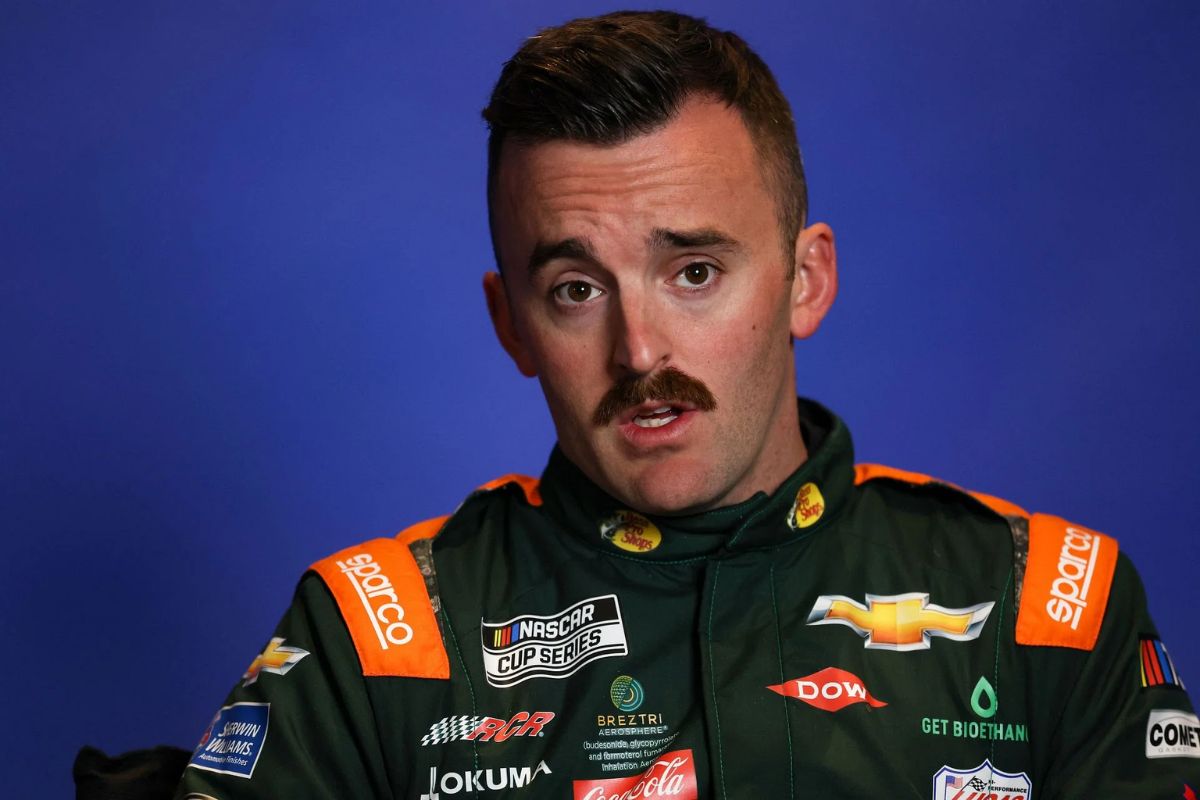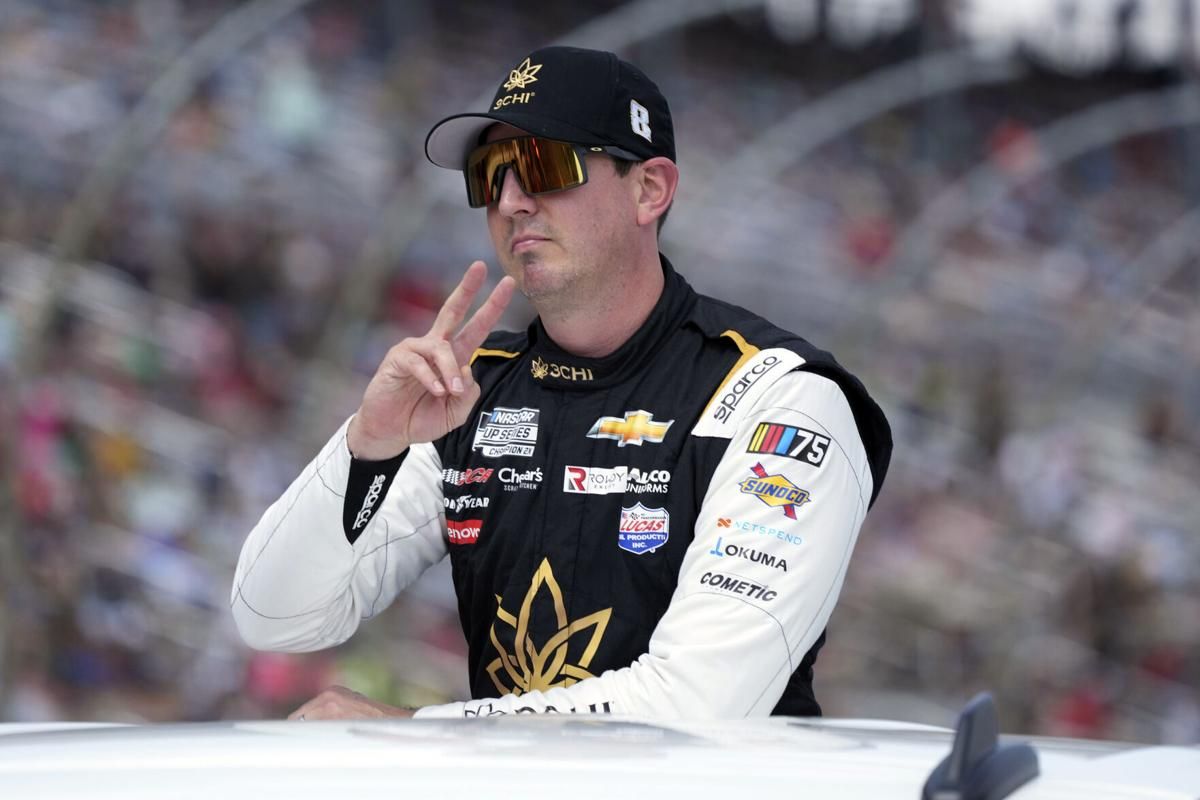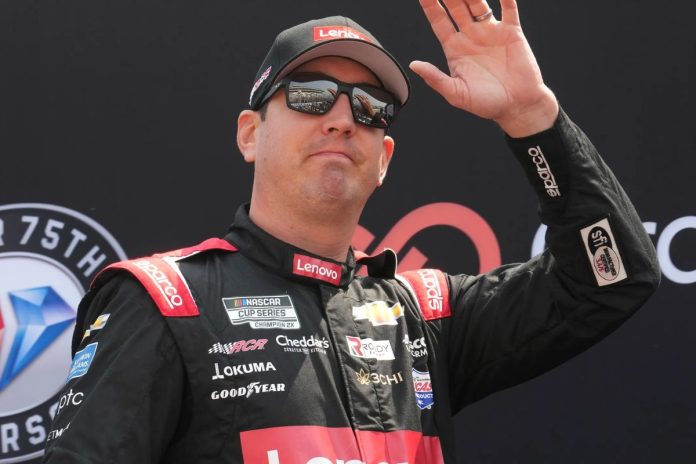Brad Gillie Exposes Kyle Busch’s RCR Struggles: In an unanticipated disclosure, Brad Gillie has cast a spotlight on Kyle Busch’s turbulent journey with Richard Childress Racing (RCR), revealing a series of internal challenges that have hampered the team’s performance. Highlighting issues such as pit crew inefficiencies and a lack of organizational unity in the wake of recent adjustments, Gillie’s insights offer a rare glimpse into the complexities behind Busch’s struggle to reclaim his former glory on the track. With a critical race at Texas Motor Speedway on the horizon, the motorsports community is now keenly observing whether this could mark the turning point for Busch’s season, further underscoring the significance of Gillie’s revelations.
Key Takeaways
- Brad Gillie criticized RCR’s lack of preparedness, affecting Kyle Busch’s performance.
- Organizational and pit crew changes at RCR have led to decreased efficiency and cohesion.
- Busch’s struggles are highlighted by a disappointing season, standing 15th in the rankings.
- Despite a successful career, Busch faces challenges adapting to RCR’s operational shifts.
- Gillie’s remarks show the significant hurdles Busch and RCR face in achieving success.
Kyle Busch and Austin Dillon’s Struggles at RCR
The Richard Childress Racing team, featuring Kyle Busch and Austin Dillon, has encountered significant challenges this season, falling short of expectations in the competitive NASCAR sport. Despite the high hopes pinned on this duo at the season’s outset, their performance has not met the anticipated standards, marking a concerning trend for the team. Busch’s promising P2 finish at Atlanta stands as a solitary highlight in an otherwise underwhelming season, with his current 15th position in the standings reflecting a lack of consistent performance and the absence of playoff points.
This downturn in results is particularly perplexing given Kyle Busch’s illustrious career and his reputation as one of NASCAR’s most formidable competitors. The shift to Richard Childress Racing was viewed by many as an opportunity for Busch to bring new energy into his career and elevate the team’s status within the series. However, the expected synergy has yet to materialize, raising questions about the integration of Busch’s driving style with the team’s strategic and technical approach.
Austin Dillon, on the other hand, has also struggled to make a significant impact this season, further compounding the team’s challenges. Despite his familiarity with the team and its operations, Dillon’s performances have not catalyzed the much-needed resurgence for Richard Childress Racing.
“It just feels like they came into the season, I hate to use the word ‘unprepared‘ but maybe they weren’t ready for everything that was going to be thrown at them. And I think that’s being shown right now by literally all of the things they’re doing to make the changes to their organization.”-Gillie

Brad Gillie Dissects RCR’s “Unpreparedness”
In a candid interview with GoPRNLive, Brad Gillie offered a sharp critique of Richard Childress Racing’s preparedness, particularly highlighting the struggles within Kyle Busch’s team due to significant pit crew and organizational changes. Gillie pointed out that these adjustments have led to a situation where the team appears overwhelmed, unable to effectively address and adapt to the myriad challenges presented throughout the season. This lack of readiness, as Gillie suggests, has been a critical factor in the team’s underperformance.
“It’s almost like they weren’t ready when the season started. And that’s really RCR as a whole. You look at Kyle Busch specifically, they spent the first five weeks just trying to filter out who their pit crew was going to be, with changes every single week before they settled with… Austin Dillon just got a new old crew chief once again this past week and Justin Alexander. And the week obviously didn’t go that well for them. But you know, they’re doing things, they’re making changes to their credit. They’re not sitting on their hands,” -Gillie
Gillie’s analysis is not merely a critique but a call to action. It suggests that for RCR and Kyle Busch’s team to recover and return to their competitive edge, a reevaluation of their strategic changes and a concerted effort to strengthen their preparedness and adaptability is essential. His insights provide a roadmap for the team to navigate out of their current predicament, focusing on rebuilding the foundational aspects that once made them formidable competitors.
Kyle Busch’s Oval Track Performance and Challenges
Focusing on Kyle Busch’s quest to enhance his oval track prowess, his journey has been marked by a mix of ambition and inconsistency, particularly highlighted by a disappointing 16th-place finish at Martinsville. Despite his commendable P3 finish at Atlanta, which momentarily hinted at a positive trajectory, Busch’s subsequent performances have painted a picture of a driver grappling with the idiosyncrasies of oval racing within the Cup Series. This inconsistency not only diminishes his ambition but also raises questions about the adaptability and strategies employed by his team.
Busch’s oval track challenges extend beyond a single disappointing finish. His overall performance in the Cup Series on ovals has been a complex mosaic of minimal laps led, a conspicuous absence of stage wins, and a scant number of top-10 finishes. This contrasts sharply with his notable success in the Truck Series at Texas Motor Speedway, suggesting a disconnect between potential and actual performance in different series and vehicles.
The combination of Busch’s Truck Series success with his Cup Series struggles on ovals highlights a broader narrative of adaptation and strategy. It prompts an examination of the factors contributing to his inconsistent performance – whether it’s the variations of car setup, team dynamics, or the psychological aspects of racing.
Prospects for a Turnaround at Texas Motor Speedway
Given Kyle Busch’s previous achievements at Texas Motor Speedway, the upcoming race offers a promising opportunity for him to address the oval track challenges that have marred his season accordingly. Despite the hurdles faced during his 2024 campaign, Busch’s track record at Texas, particularly in the Truck Series, highlights his potential to leverage past successes into a much-needed boost in the Cup Series standings.
Analyzing Busch’s performance, it’s evident that his prowess on Texas’s 1.5-mile layout could serve as the catalyst for a season turnaround. Historically, Busch has demonstrated an uncanny ability to navigate the track’s nuances, from mastering its high-speed corners to optimizing pit strategies. These skills, if harnessed effectively, could offset the performance discrepancies witnessed in earlier races.

News in Brief
The revelations brought to light by Brad Gillie concerning Kyle Busch’s tenure at Richard Childress Racing highlight the multifaceted challenges inherent in high-stakes motorsport environments. The issues of pit crew efficiency and organizational cohesion represent significant impediments to performance.
As Busch confronts these obstacles, the upcoming event at Texas Motor Speedway emerges as a crucial moment for potential recuperation. Success in this arena demands not only driver skill but also a harmonious and well-prepared team dynamic.
Our Reader’s Queries
Q. Why did Kyle Busch move to RCR?
A. Being around Richard, talking with Austin, and observing the overall culture, it just seemed like a no-brainer,” Busch remarked. Kyle Busch is set to switch from his No. 18 to the No. 8 next year.
Q. Who owns Kyle Busch Motorsports?
A. On Wednesday, Kyle Busch revealed that Spire Motorsports has acquired Kyle Busch Motorsports. The acquisition encompasses Rowdy Manufacturing and the 77,000-square foot facility located in Mooresville, North Carolina, which currently houses KBM and Rowdy Manufacturing.
ALSO READ: Kyle Busch Admits Regrets: NASCAR Legend’s Shocking Confession


